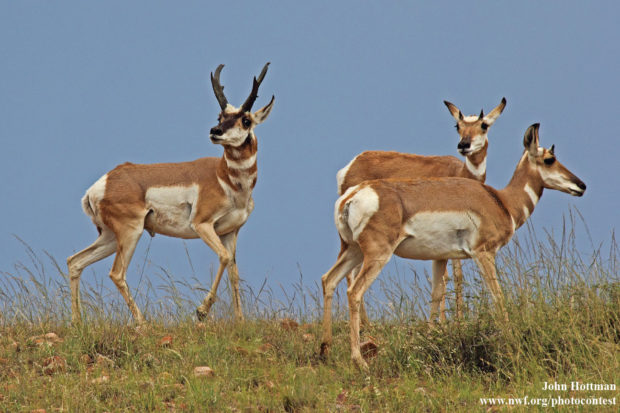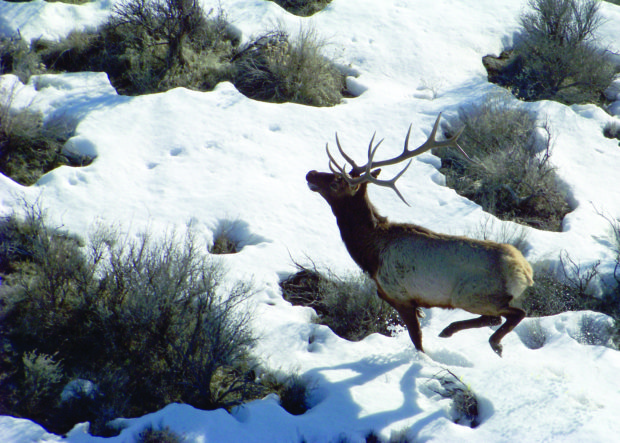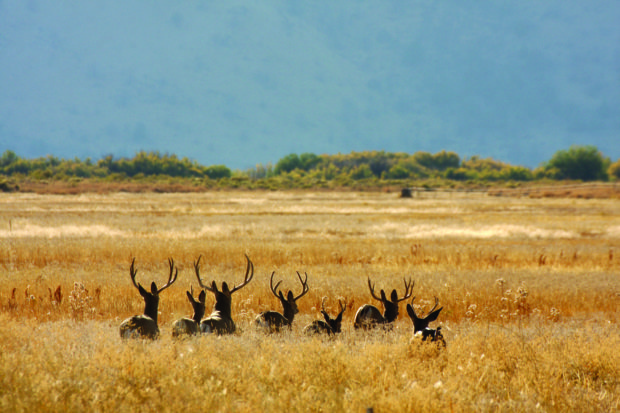We have much more to do and your continued support is needed now more than ever.
Big Impacts On Big Game
Voices from the Field: Sportsmen Speak Out
Energy development in the Powder River Basin of Montana and Wyoming has big impacts on big game.

In the West, wildlife are losing ground due to intensive energy development. The federal government, which manages the public lands and wildlife habitat, has a responsibility to Americans – those who hunt and those who enjoy time outdoors – to ensure that energy development doesn’t threaten our American birthright. The area detailed in the report includes the country’s number one coal producing region and intensely drilled lands.

- Four of the eight mule deer units evaluated received “poor” performance ratings. Those herd units are located on land with extensive energy development, including natural gas wells, large coal strip mines, and coal bed methane development.
- The only mule deer unit that received a “good” performance rating is in the part of the Black Hills of Wyoming with no energy development.
- Active sage-grouse leks or “strutting grounds” used for mating are twice as far from coal bed natural gas wells and 1.5 times as far from power lines as inactive leks.
The report notes that declines in habitat directly affect hunting and the revenue it contributes to state economies, along with tourists hungry for wildlife viewing experiences. More limited hunting seasons will lower the number of available licenses, which affects hunting opportunities for individuals and the significant income reaped by states from the money spent by hunters for equipment, travel, food, lodging and other expenses. Less revenue from hunting also affects non-game conservation programs because state wildlife agencies are largely funded by the fees and taxes paid by hunters and anglers.

Considering the results of the report, we must ask ourselves what is sustainable for our Western communities, wildlife, wild places, and economies? As Alexis Bonogofsky, a fourth-generation Montana sportswoman, explains, “Hunting isn’t a sport for me; it’s a way of life, it’s my culture. Our public lands should not be sacrificial industrial zones for corporations.”
Without a doubt wildlife hunting and watching are sustainable because they’re supported by renewable resources. Energy development is not. Our future is inextricably tied to the health of wildlife and the land.
![]() Join NWF and receive news and updates written by and for sportsmen and women who care about conservation!
Join NWF and receive news and updates written by and for sportsmen and women who care about conservation!





















